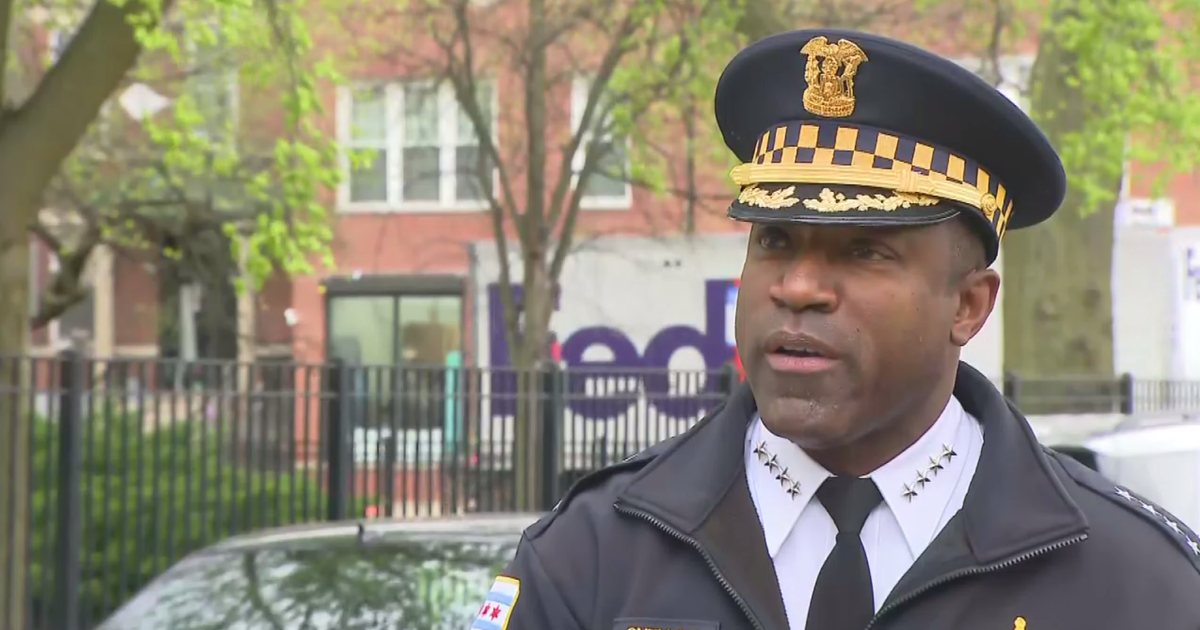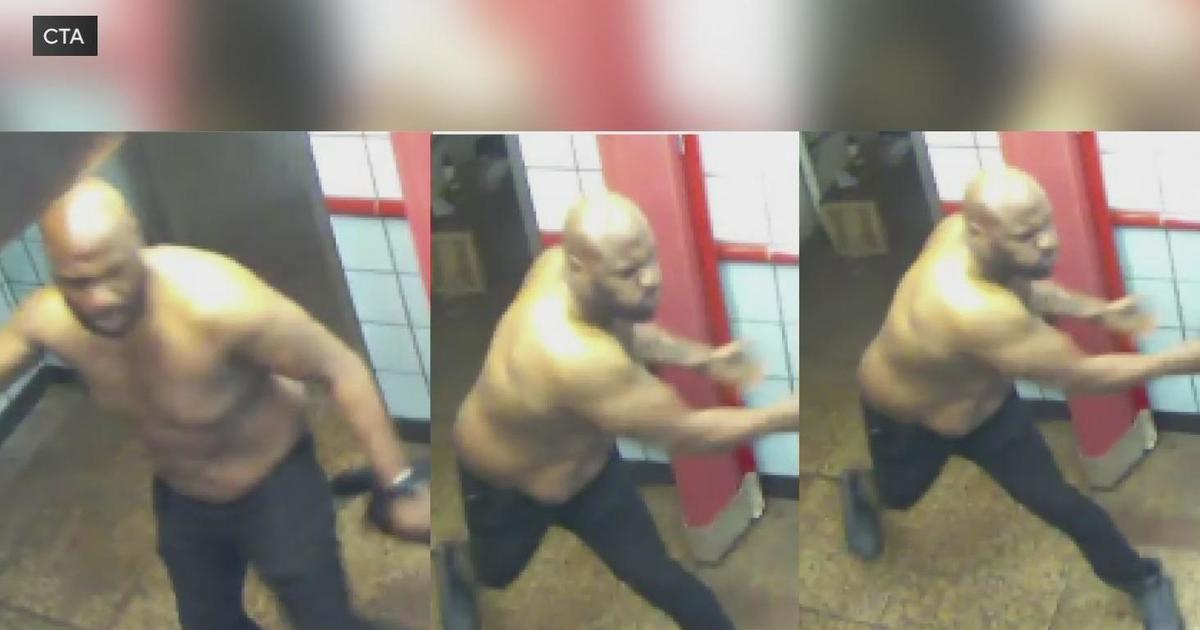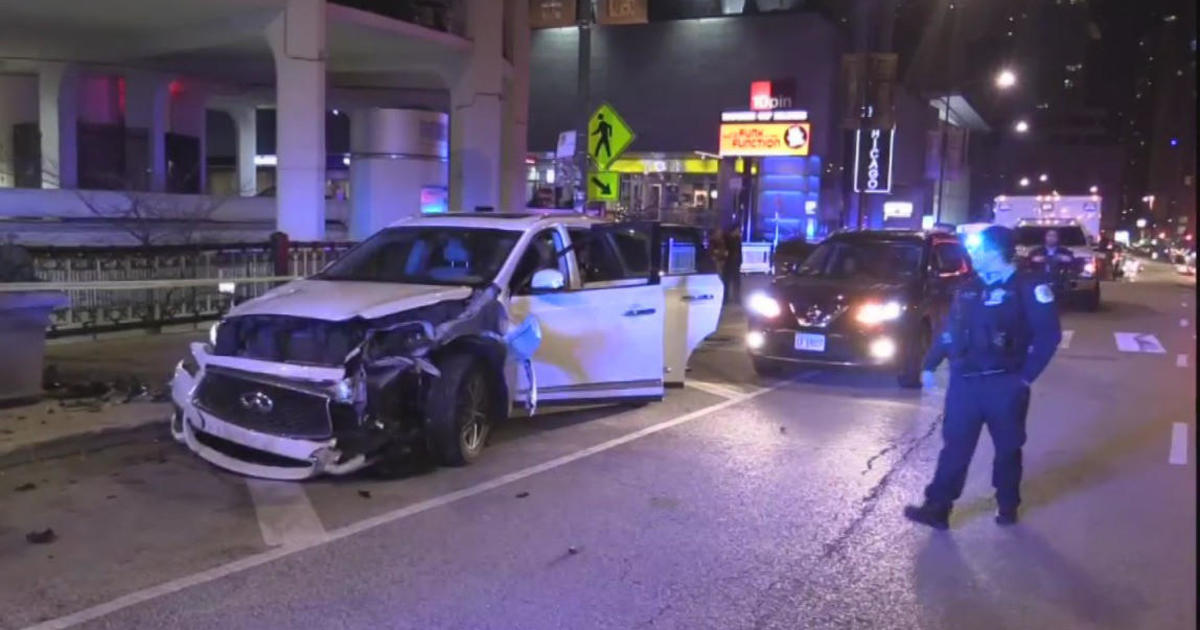Chicago Police 'Illegal, Violent' Raids Violate Consent Decree, Attorneys Say, Forcing City Back to Federal Court
By Dave Savini, Michele Youngerman, Samah Assad
CHICAGO (CBS) — A team of attorneys instrumental in the Chicago Police consent decree took legal action against the city Wednesday, saying it failed to make critical changes to stop a pattern of unconstitutional raids.
In a motion filed in federal court, the attorneys asked a judge to intervene, saying the city never responded to an enforcement action they sent last August in the required 90 days.
They also said the city failed to respond to a letter from the Illinois Attorney General (OAG) and a follow-up communication from the attorneys, again asking for a response.
"For over five months, the City has ignored multiple requests by the Coalition and OAG to collaborate on a resolution to home raid-related Consent Decree violations," the attorneys wrote in Wednesday's filing. "...Given the City's obfuscation and the on-going violations by CPD officers, the Coalition is left with no option but to seek the intervention of this Court."
[scribd id=490637442 key=key-dwie0wdnH0egbOWw0rED mode=scroll]
In their scathing, 14-page enforcement action sent in August, the attorneys said CPD is violating the consent decree through its pattern and practice of wrong raids uncovered by CBS 2. It also demanded an overhaul of the police department's search warrant process.
The attorneys said they are "seeking to end CPD's long-term failure to curtail the widespread violence that police have inflicted on Chicagoans, which especially impacts people of color and people with disabilities," according to Wednesday's filing.
The original enforcement action outlined these failures in detail. The attorneys requested city officials meet with them to discuss reforms, but in their filing Wednesday, they said "the City has refused to respond."
That lack of response, they wrote, is yet another example of the city "shirking its Consent Decree obligations."
[scribd id=490640977 key=key-weA1OIZaGVTCMOOSPxrk mode=scroll]
Documents filed in federal court Wednesday show consent decree attorneys and the Illinois Attorney General together made multiple attempts to follow up with the city about the enforcement action, but, they say, they never received a response.
The attorneys who filed the motion are also those who forced sweeping police reforms through a 2019 federal court-ordered consent decree. The decree's purpose is to end CPD's decades of systemic and excessive use of force in communities of color that contributes to the erosion of trust in the community. It also targets the department's failure to hold officers accountable.
"We know there's a lot of street policing going in Chicago, and it's not bound by any constitutional laws, and it's out of hand," said Crista Noël, who is the founder of Women's All Points Bulletin and part of the enforcement action.
The attorneys said the city's failure to respond to their demands and make changes has allowed wrong raids to continue.
"The City has missed or ignored countless deadlines," the filing said. "Meanwhile, the CPD has affirmatively continued to engage in the very use of force practices that led to the creation of the Consent Decree in the first place."
The demands sent in August criticized how, in dozens of cases exposed by CBS 2, officers failed to do basic police investigative work to verify tips from confidential informants before obtaining and executing search warrants. In each case, officers simply took the word of informants and raided the wrong homes of innocent people, leaving them traumatized.
CBS 2's analysis of CPD data also found glaring disparities where officers execute search warrants the most. During a four-year period, CPD targeted mostly Black and Latino communities when executing search warrants, while they rarely served warrants in predominantly white communities.
Nearly every wrong raid victim CBS 2 interviewed as part of its years-long investigation is a person of color.
This includes Anjanette Young, the victim of the now infamous botched raid by the Chicago Police. Body camera video revealed the social worker was naked when police burst into her home and handcuffed her.
"They're terrorizing the south and west sides of Chicago," Noël said. "And it's just to the point where you have to put your foot down and enforce the consent decree.
"When you are completely devoid of humanity by breaking into people's homes, and letting women stand nude while you rush around their house with guns pointed, there's no explanation for it."
Young and many others filed lawsuits against the city.
"Notwithstanding the existence of a binding Consent Decree and repeated lawsuits challenging CPD execution of home raids," the attorneys wrote in their filing, "CPD has continued to allow its officers to terrorize children and families in residential raids without fear of consequence, and primarily in Black and Brown communities."
Last August, the attorneys demanded the city make significant policy reforms, including requiring additional training and supervisory checks in the search warrant approval process. They also said officers must be disciplined when they violate the rules – something CBS 2 found hasn't happened in most of the wrong raids it reported on.
"There isn't evidence that a single officer has been held accountable for this stuff," said Craig Futterman, one of the attorneys behind the motion and previous enforcement action. "And so, this enforcement action is an act of last resort.". "And where's the supervision? There are really easy common-sense fixes, because at the end of the day, what we're trying to do is save people's lives and to stop traumatizing people unnecessarily."
The only officers who have been disciplined were those involved in the wrong raid on Young's home, but only after CBS 2 fought for, and aired, the disturbing body camera video nearly two years after it happened.
"...It is one egregious example in a series of illegal, violent raids conducted by CPD over past years, for which CPD has failed to hold a single officer to account," the attorneys wrote in the filing.
The consent decree attorneys also called for stronger protections when children are present during a police raid. In one incident, CBS 2 obtained body camera video that showed a child was handcuffed, despite family members telling officers he was only 8 years old.
In other cases, families accused officers of using force by pointing guns at children, including 9-year-old Peter Mendez in 2017 and another child as young as a few months old in 2018.
"That's what this consent decree is designed to prevent," Futterman said. "That's why we're enforcing it because there's no other way to stop it. CPD has proven they are not going to stop unless they're forced to."
As part of Wednesday's filing, the attorneys entered as evidence CBS 2's reporting to underscore the trauma experienced by children. Specifically, they cited body camera video previously aired by CBS 2 as a key piece of evidence that shows the moments police burst into the home of the Archie family with guns drawn.
It happened in 2019, on a day when 14-year-old Savannah was babysitting her two younger siblings while their mom was at work. This was the second of three wrong raids the family would experience by CPD in one year.
Savannah was captured on the video, begging police not to shoot her.
"Please do not shoot me, please, please," Savannah cried, with her face down on the floor and her hands behind her head.
Officers also interrogated the children without a parent present.
"Hey, just tell us, do you know where the stuff's at?" one officer asked. "Because if you can tell us that, then we're out of here."
"What stuff? I don't…" Savannah said.
The officer continued: "So did you stop selling it? Did you stop keeping it here?"
"Who?" Savannah said.
"Whoever keeps it here," the officer said.
Her 11-year-old sister, Telia, can be heard telling officers she doesn't know what the officers are talking about.
"We never…we never had any," Telia said.
While CPD made some changes to its search warrant policy in January 2020, it hasn't stopped officers from violating the rules. CBS 2 uncovered two new wrong raids that happened just months after the new policy was put into effect.
"CPD has proven time and time again that it will not simply follow the law, follow the Constitution, unless it's forced to do so," Futterman said.
Eric Wilkins, organizer with Communities United, is also part of the enforcement action. He believes the tactics used by CPD are "designed to break" people of color.
"Our neighborhoods are full of trauma," he said. "Everything they're doing to us is inhumane."
Futterman said the police department's lack of response to the enforcement action, and the continued wrong raids without discipline, show "the sad, ongoing reality."
"Accountability is the absolute biggest piece," he said. "This consent decree is about a regime of a lack of accountability [and] what happens when police officers are systematically not held accountable when they abuse their powers."
When asked in December why the city failed to respond to the August enforcement action, Mayor Lori Lightfoot said she wasn't familiar with it.
"I'm happy to look into that letter, but I'm not familiar with it, and I'm not used to shooting from the hip about something I'm not familiar with," Lightfoot said.
Futterman questioned how the mayor wouldn't know about important demands related to the consent decree.
"She doesn't watch the news? And her top people aren't sharing with her what CBS tweeted and [what was] retweeted around the United States?" Futterman said. "That's just not credible or believable. So yes, a mayor, and a mayor who's doing their job, is certainly aware of what's going on with the consent decree."
In Wednesday's filing, the team of attorneys also requested the judge hold City Council accountable. They asked the judge require aldermen report CPD's progress connected to wrong raids.
In addition, they requested the judge supervise an "expedited process" to ensure the city responds to their demands and work with them to improve search warrant policies and practices. If not, the attorneys will ask the judge to schedule an evidentiary hearing. They will also ask for sanctions to force CPD to enact those reforms.
The attorneys wrote that without the judge's intervention, CPD "will continue to violate the Consent Decree and harm Chicago communities – particularly Black and Brown communities."
In a statement, Chicago's law department said, in part, "The City is steadfast in its commitment to implement the important reforms of the Consent Decree."
It also said, "the City remains dedicated to enacting reforms" on the issue of search warrants and "will continue to engage with the Coalition and the independent monitor on this issue and others that are part of the Decree."
Along with Futterman, a civil rights attorney with the Mandel Legal Aid Clinic at University of Chicago, the group of attorneys pushing for changes is comprised of: Sheila Bedi, with the Bluhm Legal Clinic and professor at Northwestern's Pritzker School of Law; Vanessa del Valle and Alexa Van Brunt, also with the Northwestern Pritzker School of Law; Nusrat Choudhury and Elizabeth Jordan, with the Roger Baldwin Foundation of the ACLU; and Amanda Antholt, with Equip for Equality.
Also From CBS Chicago:



